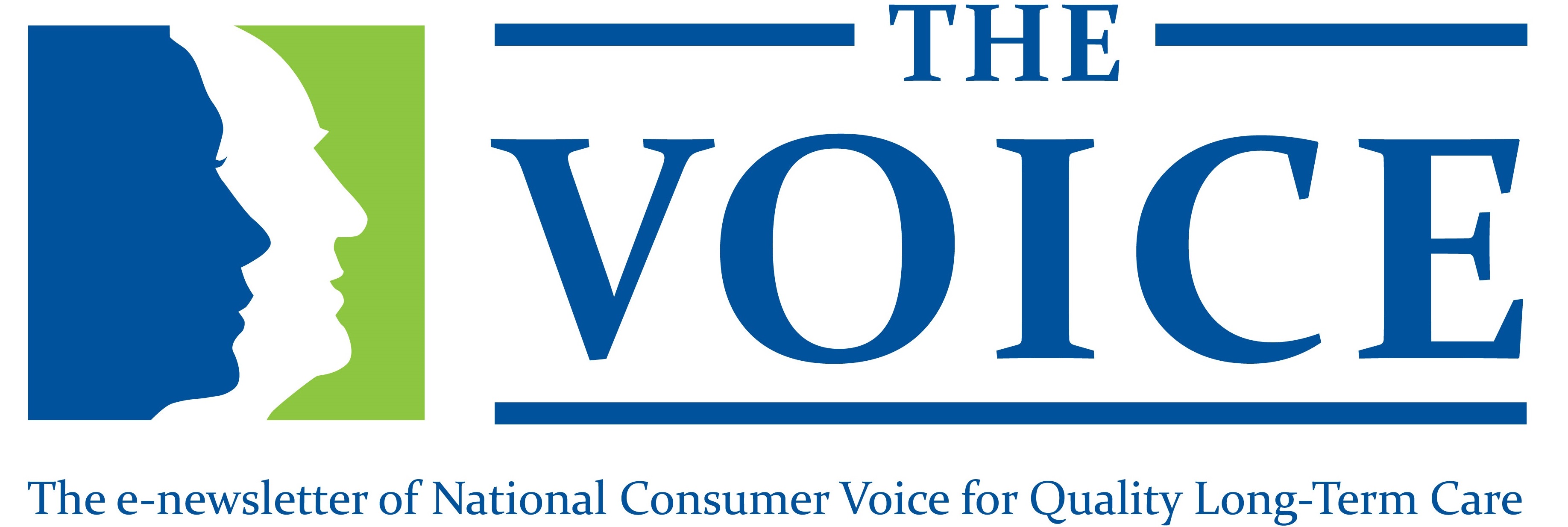|
August 10, 2021
In this Issue:
- Nursing Home Improvement and Accountability Act Introduced in Senate
- New GAO Report on Medicare and Staffing in Skilled Nursing Facilities
- Elder Justice Reauthorization Introduced in Congress
- Researchers Seeking Caregivers for Study on Mealtimes
- Urge Congress to Support the Essential Caregivers Act
|
|
Nursing Home Improvement and Accountability Act Introduced in Senate
Senate Finance Committee Chairman Ron Wyden (D-OR), Senate Aging Committee Chairman Bob Casey (D-PA), along with Senators Richard Blumenthal (D-CT), Michael Bennet (D-CO), Sheldon Whitehouse (D-RI), and Sherrod Brown (D-OH), today introduced legislation to update federal nursing home policy to improve quality of care and oversight, after the COVID-19 pandemic took the lives of hundreds of thousands of residents and workers in nursing homes. The Nursing Home Improvement and Accountability Act addresses staffing, transparency, accountability, oversight and the structure and culture of facilities. The bill would require nursing homes to meet minimum staffing standards, ensure a Registered Nurse (RN) is available 24 hours a day, require a full-time infection control and prevention specialist and provide additional resources through Medicaid to support these care and staffing improvements and raise wages. The bill also would improve data collection, which would provide better information to residents and their families and make state surveys more effective.
Read the summary and section-by-section of the bill.
|
|
New GAO Report on Medicare and Staffing in Skilled Nursing Facilities
The U.S. Government Accountability Office (GAO) released a report entitled "Medicare: Additional Reporting on Key Staffing Information and Stronger Payment Incentives Needed for Skilled Nursing Facilities." The report describes Skilled Nursing Facilities' (SNFs) performance regarding nurse staffing measures; the Centers for Medicare & Medicaid Services' (CMS) reporting of nurse staffing information on the Care Compare website; and Medicare payments for critical incidents. The GAO analysis of 2019 staffing data found that while almost all SNFs met the federal requirement of having a registered nurse on site 8 hours a day, only 1 in 4 SNFs met nurse staffing levels needed to avoid care quality problems. GAO estimated that Medicare spent over $5 billion in 2018 on re-hospitalizations. Research shows that low nurse staffing can lead to potentially preventable re-hospitalizations. The GAO report included recommendations to Congress and CMS in their report.
Read the Report
|
|
Elder Justice Reauthorization Introduced in Congress
The Elder Justice Reauthorization and Modernization Act of 2021 has been introduced in the House (H.R.4969) and Senate (S.2674). The bill includes:
- $1.6 billion in funding for long-term care workforce development in the form of grants to states and territories to support workers providing aide, nursing and social work services in long-term care settings. These funds must be used to provide wage subsidies to long-term care employees; provide student loan repayment or tuition assitance; guarantee affordable and accessible childcare; and provide transportation assistance.
- $1.4 billion in funding for Adult Protective Services (APS) to collect and disseminate data; develop best practices and APS training; conduct research related to APS; and provide technical assistance to states and other entities that provide or fund APS.
- $172.5 million in funding for the long-term care (LTC) ombudsman program to increase the capacity of state LTC ombudsman programs to respond to and resolve abuse and neglect complaints, and funding to establish programs that provide and improve ombudsman training for national organizations and state LTC ombudsman programs, with a focus on elder abuse, neglect, and exploitation.
- $500 million for supporting linkages to legal services and medical-legal partnerships. Grants to states must be used to develop multidisciplinary teams that combine clinical staff with social workers and lawyers at a single site of care to ensure patients' social and legal needs are met, such as housing, food, education, and access to care.
- $250 million in grants and training to community-based organizations to conduct outreach to individuals at risk for social isolation or loneliness, develop interventions to mitigate loneliness and social isolation, and to connect at-risk individuals with social and clinical supports.
|
|
Researchers Seeking Caregivers for Study on Mealtimes
Are you a Caregiver to a loved-one with Alzheimer’s or another related dementia? Are mealtimes sometimes challenging?
Researchers at the Medical University of South Carolina are looking for volunteers to join an in-home meal intervention research study. Study compensation is provided and people from all backgrounds are encouraged to volunteer.
Take a short survey to see if you and your loved-one may be eligible to take part in this study: https://redcap.musc.edu/surveys/?s=DDPY7CF7AH
Read the flyer for more information.
|
|
Urge Congress to Support the Essential Caregivers Act
The Essential Caregivers Act (H.R. 3733) is bipartisan legislation that gives residents of nursing homes the right to access essential caregivers (ECs) during any public health emergency. Contact your members of Congress to urge them to support this important legislation!
An essential caregiver is a person, designated by the resident, who can enter the facility, even when visitation is shut down during a public health emergency, to provide support, assistance, and companionship to the resident. Very often, this person is a family member.
Each resident can select up to two essential caregivers. These visits will be guaranteed as long as the essential caregiver follows all the safety and infection protocols required of staff so they do not pose any increased risk to resident safety. Essential caregivers who refuse to follow the same protocols will be denied entry.
Share our recent issue brief with friends and family members, and contact your memebers of Congress to ask them to support the Essential Caregivers Act!
Find contact information for your members of Congress here.
|

|
